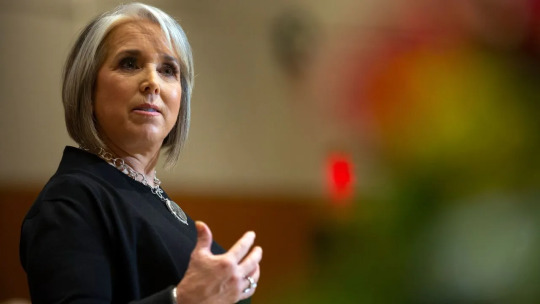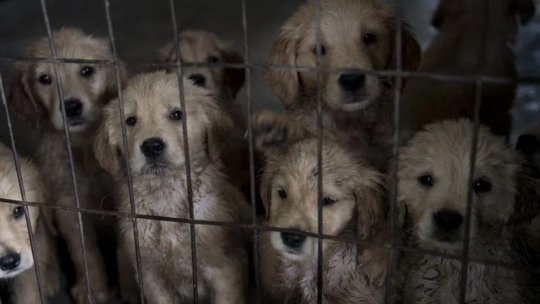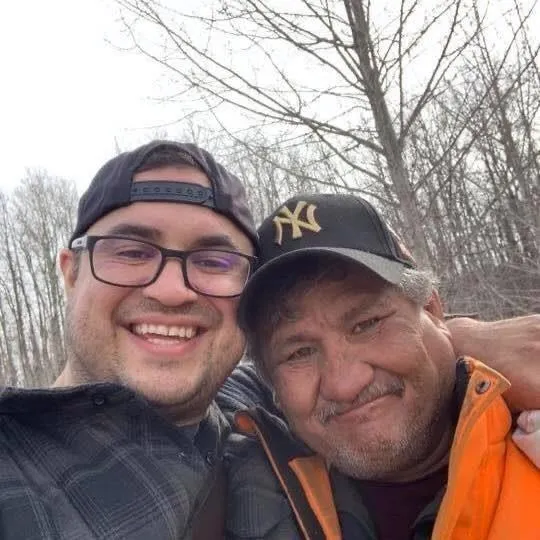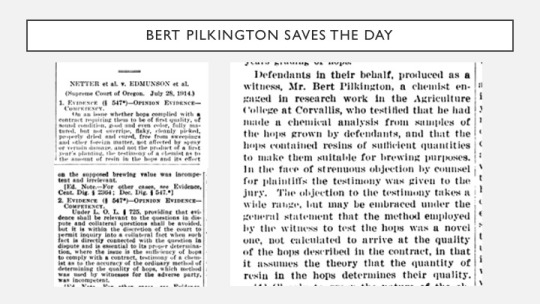#farm laws supreme court hearing
Explore tagged Tumblr posts
Text
The Best News of Last Week - March 27, 2023
🐢 - Why did the 90-year-old tortoise become a father? Because he finally came out of his shell!
1. New Mexico governor signs bill ending juvenile life sentences without parole

New Mexico Governor Michelle Lujan Grisham has signed a bill into law that prevents juvenile offenders from receiving life sentences without eligibility for parole. The bill, known as the No Life Sentences for Juveniles Act, allows offenders who committed crimes under the age of 18 and received life sentences to be eligible for parole hearings 15 to 25 years into their sentences.
This legislation also applies to juveniles found guilty of first-degree murder, even if they were tried as adults. The move puts New Mexico in a group of at least 24 other states and Washington, DC, that have enacted similar measures following a 2021 Supreme Court ruling.
2. Promising pill completely eliminates cancer in 18 leukaemia patients

An experimental pill called revumenib has shown promise in curing terminal leukemia patients who were not responding to treatment in a long-awaited clinical trial in the United States. The drug works by inhibiting a specific protein called menin, which is involved in the machinery that gets hijacked by leukemia cells and causes normal blood cells to turn into cancerous ones.
The pill targets the most common mutation in acute myeloid leukemia, a gene called NPM1, and a less common fusion called KMT2A. The US Food and Drug Administration granted revumenib "breakthrough therapy designation" to fast-track its development and regulatory review based on the promising results of the trial.
3. Spain passes law against domestic animal abuse

Spain has passed a new law on animal welfare, accompanied by a reform of the penal code that increases prison sentences for those mistreating animals. The law will make compulsory training for dog owners, and will prohibit them from leaving their dogs alone for more than 24 hours.
It also mandates the sterilisation of cats, with exceptions for farms, and increases the penalties for mistreatment of animals to up to two years in prison, or three years in the event of aggravating circumstances.
4. Bravery medals for women who raced into 'rough, crazy' surf to save drowning girls

Elyse Partridge (far left) and Bella Broadley (far right) raced into dangerous surf to save Chloe and Violet from drowning.(ABC North Coast: Hannah Ross)
Bella Broadley and Elyse Partridge saved two 11-year-old girls from drowning at Angels Beach near Ballina, an unpatrolled beach in Australia. The younger girls, Chloe and Violet, became trapped in a rip and overwhelmed by waves and the current. Bella and Elyse jumped into action, using an esky lid as a flotation device to help them swim to the girls. Elyse helped Chloe back to shore while Bella swam further out to help Violet.
Elyse and Bella were on Wednesday named on the Governor General's Australian Bravery Decorations Honours List, which recognised 66 Australians for acts of bravery.
5. Almost every cat featured in viral Tik Tok posted by Kansas City animal shelter adopted
Let's find homes for the rest
youtube
6. A 90-year-old tortoise named Mr. Pickles just became a father of 3. It's a big 'dill'

These critically endangered tortoises are native to Madagascar and have seen their numbers decline due to over-collection for illegal sales on the black market. Captive breeding programs have helped produce new radiated tortoises, but the species still faces extinction in the wild.
That's why the arrival of these hatchlings, born to 90-year-old Mr. Pickles and his 53-year-old partner Mrs. Pickles, is such great news. Mr. Pickles is considered the most genetically valuable radiated tortoise in the Association of Zoos and Aquariums' Species Survival Plan, and the births represent a significant contribution to the survival of the species.
7. EU strikes ‘ground-breaking’ deal to cut maritime emissions

The European Parliament and EU ministers have agreed on a new law to cut emissions in the maritime sector. The law aims to reduce ship emissions by 2% as of 2025 and 80% as of 2050, covering greenhouse gas, methane, and nitrous oxide emissions.
The European Commission will review the law in 2028 and will decide whether to place carbon-cutting requirements on smaller ships. The agreement will also require containerships and passenger ships docking at major EU ports to plug into the on-shore power supply as of 2030. Penalties collected from those that fail to meet the targets will be allocated to projects focused on decarbonising the maritime sector.
- - - -
That's it for this week :)
This newsletter will always be free. If you liked this post you can support me with a small kofi donation:
Buy me a coffee ❤️
Also don’t forget to share this post with your friends.
467 notes
·
View notes
Text
WASHINGTON (AP) — The Supreme Court on Wednesday is taking up challenges by commercial fishermen to a fee requirement that could achieve a long-sought goal of business and conservative interests: limiting a wide swath of government regulations.
Billions of dollars are potentially at stake in front of a court that, like the rest of the federal judiciary, was remade during Donald Trump’s presidency by conservative interests that were motivated as much by weakening the regulatory state as social issues including abortion.
Lawyers for the fishermen are asking the justices to overturn a 40-year-old decision that is among the most frequently cited high court cases in support of regulatory power, including on the environment, public health, workplace safety and consumer protections.
Lower courts used the decision known colloquially as Chevron to uphold a 2020 National Marine Fisheries Service rule that herring fishermen pay for government-mandated observers who track their fish intake.
The 1984 decision states that when laws aren’t crystal clear, federal agencies should be allowed to fill in the details as long as they come up with a reasonable interpretation. “Judges are not experts in the field, and are not part of either political branch of government,” Justice John Paul Stevens wrote for the court in 1984, explaining why they should play a limited role. The court ruled 6-0, with three justices recused.
But the current high court, with a 6-3 conservative majority that includes three appointees of Trump, has been increasingly skeptical of the powers of federal agencies. At least four justices — Clarence Thomas, Samuel Alito, Neil Gorsuch and Brett Kavanaugh — have questioned the Chevron decision.
Opponents of the Chevron doctrine argue that judges apply it too often to rubber-stamp decisions made by government bureaucrats. Judges must exercise their own authority and judgment to say what the law is, the lawyers for the company that owns the Rhode Island based Relentless and Persistence fishing boats told the court.
They also say that agencies effectively act as judges in their own cases. “It is patently unfair for a court to defer to an agency’s interpretation in cases where the agency itself is a litigant, before that same court, in the actual case at hand,” the lawyers wrote.
Defending the rulings that upheld the fees, the Biden administration said that overturning the Chevron decision would produce a “convulsive shock” to the legal system.
“Chevron gives appropriate weight to the expertise, often of a scientific or technical nature, that federal agencies can bring to bear in interpreting federal statutes,” Solicitor General Elizabeth Prelogar wrote on behalf of the administration.
Environmental, health advocacy groups, civil rights organizations, organized labor and Democrats on the national and state level are urging the court to leave the Chevron decision in place.
Gun, e-cigarette, farm, timber and home-building groups are among the business groups supporting the fishermen. Conservative interests that also intervened in recent high court cases limiting regulation of air and water pollution are backing the fishermen as well.
The justices are hearing two cases on the same issue. Justice Ketanji Brown Jackson is recused in one case, from New Jersey, because she took part in it at an earlier stage when she was an appeals court judge. The full court is participating in the case from Rhode Island, which the justices added to their docket several months later.
2 notes
·
View notes
Text
Supreme Court Declines to Hear Appeal of Man Convicted in Fatal Shooting of Métis Hunters in Alberta

Supreme Court Declines to Hear Appeal of Man Convicted in Fatal Shooting of Métis Hunters in Alberta Canada’s Supreme Court has opted not to hear the appeal of Anthony Bilodeau, one of two men convicted in the tragic shooting deaths of two Métis hunters in eastern Alberta. The court's dismissal of Bilodeau's leave to appeal was announced on Thursday without providing reasons for the decision. Background of the Case The incident occurred in March 2020 when Bilodeau and his father, Roger Bilodeau, became concerned about a truck parked at the end of their rural property. After chasing down the vehicle, a confrontation ensued, resulting in the fatal shooting of Maurice Cardinal, 57, and his nephew Jacob Sansom, 39. The two men had been moose hunting prior to the incident and were found shot and left on the side of the road near Glendon, Alberta, approximately 200 kilometers northeast of Edmonton. In a trial that garnered significant public attention, Anthony Bilodeau was convicted of second-degree murder for Cardinal's death and manslaughter for Sansom's death. He received a life sentence with no chance of parole for 13 years. His father, Roger Bilodeau, was convicted of manslaughter in the deaths and sentenced to 10 years in prison. Trial Arguments and Crown’s Stance During the trial, the defense argued that the Bilodeaus acted in self-defense, believing that the hunters were attempting to steal from their family farm. However, the Crown contended that the father and son took the law into their own hands by pursuing the hunters, leading to the deadly confrontation. The case sparked discussions about vigilantism and the responsibilities of citizens when confronting suspected crimes, particularly in rural communities where tensions can run high. Roger Bilodeau’s Parole and Community Dynamics Roger Bilodeau was released on day parole in May, and last month, the Parole Board of Canada extended his release for an additional three months. In their decision, the board described him as a low risk to reoffend. They noted that his criminal actions stemmed from a "complex interplay of personal beliefs, misinterpretations, and deep-seated frustrations." The board's assessment highlighted Bilodeau’s background, stating, “Growing up in a crime-free environment and living a law-abiding life, you harbored a strong sense of responsibility towards family and property.” However, on the day of the offence, his judgment was affected by anger and mistrust, leading him to confront the hunters under mistaken beliefs about their intentions. As a condition of his day parole, Roger Bilodeau must adhere to several stipulations, including no contact with the victims' families, ongoing therapy, and a curfew due to the community dynamics related to the case. Conclusion The Supreme Court's decision not to hear Anthony Bilodeau's appeal marks another chapter in a case that has raised significant questions about justice, self-defense, and community safety. As Roger Bilodeau navigates his parole conditions, the impact of this tragic incident continues to resonate within the Métis community and beyond, reminding all of the complexities surrounding vigilantism and the tragic consequences of misperceptions. Thank you for taking the time to read this article! Your thoughts and feedback are incredibly valuable to me. What do you think about the topics discussed? Please share your insights in the comments section below, as your input helps me create even better content. I’m also eager to hear your stories! If you have a special experience, a unique story, or interesting anecdotes from your life or surroundings, please send them to me at [email protected]. Your stories could inspire others and add depth to our discussions. If you enjoyed this post and want to stay updated with more informative and engaging articles, don’t forget to hit the subscribe button! I’m committed to bringing you the latest insights and trends, so stay tuned for upcoming posts. Wishing you a wonderful day ahead, and I look forward to connecting with you in the comments and reading your stories! Read the full article
0 notes
Text
Events 6.3
752 – Mayan king Bird Jaguar IV of Yaxchilan in modern-day Chiapas, Mexico, assumes the throne. 1481 – The largest of three earthquakes strikes the island of Rhodes and causes an estimated 30,000 casualties. 1491 – Kongo monarch Nkuwu Nzinga is baptised by Portuguese missionaries, adopting the baptismal name of João I. 1568 – Angered by the brutal onslaught of Spanish troops at Fort Caroline, a French force burns the San Mateo fort and massacres hundreds of Spaniards. 1616 – Treaty of Loudun ends a French civil war. 1715 – A total solar eclipse is visible across northern Europe and northern Asia, as predicted by Edmond Halley to within four minutes accuracy. 1791 – The Constitution of May 3 (the first modern constitution in Europe) is proclaimed by the Sejm of Polish–Lithuanian Commonwealth. 1802 – Washington, D.C. is incorporated as a city after Congress abolishes the Board of Commissioners, the District's founding government. The "City of Washington" is given a mayor-council form of government. 1808 – Finnish War: Sweden loses the fortress of Sveaborg to Russia. 1808 – Peninsular War: The Madrid rebels who rose up on May 2 are executed near Príncipe Pío hill. 1815 – Neapolitan War: Joachim Murat, King of Naples, is defeated by the Austrians at the Battle of Tolentino, the decisive engagement of the war. 1830 – The Canterbury and Whitstable Railway is opened; it is the first steam-hauled passenger railway to issue season tickets and include a tunnel. 1837 – The University of Athens is founded in Athens, Greece. 1848 – The boar-crested Anglo-Saxon Benty Grange helmet is discovered in a barrow on the Benty Grange farm in Derbyshire. 1849 – The May Uprising in Dresden begins: The last of the German revolutions of 1848–49. 1855 – American adventurer William Walker departs from San Francisco with about 60 men to conquer Nicaragua. 1901 – The Great Fire of 1901 begins in Jacksonville, Florida. 1913 – Raja Harishchandra, the first full-length Indian feature film, is released, marking the beginning of the Indian film industry. 1920 – A Bolshevik coup fails in the Democratic Republic of Georgia. 1921 – Ireland is partitioned under British law by the Government of Ireland Act 1920, creating Northern Ireland and Southern Ireland. 1921 – West Virginia becomes the first state to legislate a broad sales tax, but does not implement it until a number of years later due to enforcement issues. 1928 – The Jinan incident begins with the deaths of twelve Japanese civilians by Chinese forces in Jinan, China, which leads to Japanese retaliation and the deaths of over 2,000 Chinese civilians in the following days. 1939 – The All India Forward Bloc is formed by Netaji Subhas Chandra Bose. 1942 – World War II: Japanese naval troops invade Tulagi Island in the Solomon Islands during the first part of Operation Mo that results in the Battle of the Coral Sea between Japanese forces and forces from the United States and Australia. 1945 – World War II: Sinking of the prison ships Cap Arcona, Thielbek and Deutschland by the Royal Air Force in Lübeck Bay. 1947 – New post-war Japanese constitution goes into effect. 1948 – The U.S. Supreme Court rules in Shelley v. Kraemer that covenants prohibiting the sale of real estate to blacks and other minorities are legally unenforceable. 1951 – London's Royal Festival Hall opens with the Festival of Britain. 1951 – The United States Senate Committee on Armed Services and United States Senate Committee on Foreign Relations begin their closed door hearings into the relief of Douglas MacArthur by U.S. President Harry Truman. 1952 – Lieutenant Colonels Joseph O. Fletcher and William P. Benedict of the United States land a plane at the North Pole. 1952 – The Kentucky Derby is televised nationally for the first time, on the CBS network. 1953 – Two men are rescued from a semitrailer that crashed over the side of the Pit River Bridge before it fell into the Sacramento River. Amateur photographer Virginia Schau photographs "Rescue on Pit River Bridge", the first and only winning submission for the Pulitzer Prize for Photography to have been taken by a woman. 1957 – Walter O'Malley, the owner of the Brooklyn Dodgers, agrees to move the team from Brooklyn to Los Angeles. 1963 – The police force in Birmingham, Alabama switches tactics and responds with violent force to stop the "Birmingham campaign" protesters. Images of the violent suppression are transmitted worldwide, bringing new-found attention to the civil rights movement. 1968 – Eighty-five people are killed when Braniff International Airways Flight 352 crashes near Dawson, Texas. 1971 – Erich Honecker becomes First Secretary of the Socialist Unity Party of Germany, remaining in power until 1989. 1978 – The first unsolicited bulk commercial email (which would later become known as "spam") is sent by a Digital Equipment Corporation marketing representative to every ARPANET address on the west coast of the United States. 1979 – Margaret Thatcher wins the United Kingdom general election. The following day, she becomes the first female British Prime Minister. 1986 – Twenty-one people are killed and forty-one are injured after a bomb explodes on Air Lanka Flight 512 at Colombo airport in Sri Lanka. 1987 – A crash by Bobby Allison at the Talladega Superspeedway, Alabama fencing at the start-finish line would lead NASCAR to develop the restrictor plate for the following season both at Daytona International Speedway and Talladega. 1999 – The southwestern portion of Oklahoma City is devastated by an F5 tornado, killing forty-five people, injuring 665, and causing $1 billion in damage. The tornado is one of 66 from the 1999 Oklahoma tornado outbreak. This tornado also produces the highest wind speed ever recorded, measured at 301 +/- 20 mph (484 +/- 32 km/h). 1999 – Infiltration of Pakistani soldiers on Indian side results in the Kargil War. 2000 – The sport of geocaching begins, with the first cache placed and the coordinates from a GPS posted on Usenet. 2001 – The United States loses its seat on the U.N. Human Rights Commission for the first time since the commission was formed in 1947. 2006 – Armavia Flight 967 crashes into the Black Sea near Sochi International Airport in Sochi, Russia, killing 113 people. 2007 – The three-year-old British girl Madeleine McCann disappears in Praia da Luz, Portugal, starting "the most heavily reported missing-person case in modern history". 2015 – Two gunmen launch an attempted attack on an anti-Islam event in Garland, Texas, which was held in response to the Charlie Hebdo shooting. 2016 – Eighty-eight thousand people are evacuated from their homes in Fort McMurray, Alberta, Canada as a wildfire rips through the community, destroying approximately 2,400 homes and buildings. 2023 – Nine students and a security guard are killed in the Belgrade school shooting, the first attack of its kind in Serbia.
0 notes
Text
Disappointed with process, will stay implementation of farm laws: Supreme Court tells Centre
Disappointed with process, will stay implementation of farm laws: Supreme Court tells Centre
Image Source : INDIA TV Supreme Court today heard a batch of petitions challenging the constitutional validity of the three farm laws, passed by the Centre along with the plea to remove protesting farmers. The Supreme Court on Monday heard a batch of petitions, including those filed by DMK MP Tiruchi Siva, RJD MP Manoj K Jha, challenging the constitutional validity of the three farm laws, passed…

View On WordPress
#delhi farmers protest#farm laws#farm laws hearing#farm laws supreme court hearing#farmers agitation#Farmers protest#farmers protest delhi#farmers protest India#farmers protest live updates#farmers protest news#farmers protest supreme court#kisam andolan#kisan andolan latest news#supreme court#Supreme Court live news#supreme court on farmer protest#supreme court on kisan andolan#supreme court statement on farmers protest
0 notes
Text
Farm laws hearing in Supreme Court | HIGHLIGHTS
Farm laws hearing in Supreme Court | HIGHLIGHTS
Image Source : PTI New Delhi: Farmers during their ongoing agitation against new farm laws, at Ghazipur border, in New Delhi, Monday, Jan. 11, 2021. The Supreme Court Tuesday stayed the implementation of controversial new farm laws till further orders and decided to set up a committee to resolve the impasse over them between the Centre and farmers’ unions protesting at Delhi borders. A bench…

View On WordPress
#Delhi Farmers protest#farm laws supreme court#farm laws supreme court verdict#farmers protest#Farmers protest Delhi#Farmers protest India#Farmers protest live updates#Farmers protest news#farmers protest supreme court#Supreme Court#supreme court farmers laws#Supreme Court hearing o#Supreme Court hearing on farm bills#supreme court hearing on farmers protest#Supreme Court live news#supreme court on farmer protest#supreme court verdict on farmers protest#supreme court verdict today
0 notes
Text
Farmers Protest in India
Farmers Protest in India

View On WordPress
0 notes
Text
DNA Exclusive: Will deadlock between Centre, farmer unions over new agri laws break in Supreme Court?
DNA Exclusive: Will deadlock between Centre, farmer unions over new agri laws break in Supreme Court?
New Delhi: The eighth round of talks between the Centre and the farmer unions to end over-a-month-long agitation remained inconclusive here at Vigyan Bhawan on Friday (January 8). While the farmer leaders remained adamant on repealing the new agricultural laws, the government, however, ruled out the same reiterating that it was ready for the amendment. The next meeting has been now been fixed…
View On WordPress
#8th round of talks#DNA Exclusive#farmers protest#narendra singh tomar#New farm laws#Supreme Court hearing
0 notes
Text
We encourage consultation, says SC after Centre conveys ‘healthy discussions’ going on with farmers
We encourage consultation, says SC after Centre conveys ‘healthy discussions’ going on with farmers
The Supreme Court will on January 11 hear a batch of pleas challenging the new farm laws as well as the issues related to the ongoing farmers’ protest at Delhi borders. On Wednesday, a bench headed by Chief Justice S A Bobde observed that there is no improvement on the ground regarding farmers’ protests, following which the Centre conveyed to the court that “healthy discussions” are going on…

View On WordPress
#Farm laws in SC#farmers protests#india news#indian express#Sc to hear plea against farm laws#Supreme Court farm laws
0 notes
Note
I've been hearing from mildly, otherwise normal conservatives that Reagan is not the president to emulate, bbut Dwight Eisenhower. I'm researching that, but was wondering if you knew any key differences in these men's presidencies.
Oh yes. By a lot. Eisenhower would be a Democrat today, and would have been chased out as a "RINO" long, LONG since, since even in his own day he was on the progressive, liberal side of the Republican Party. He did a number of things which still decently hold up to scrutiny now, and as noted in previous posts, he maintained a 90%+ tax rate on the highest earners in the country. Among other things, he also:
Entered the presidential race to oppose isolationist, anti-NATO Republicans (since you know, he had just spent several years fighting Nazis as the Supreme Allied Commander in WWII)
Signed the Civil Rights Acts of 1957 and 1960 and sent the army to enforce school integration; he also completed the full racial integration of the armed forces and declared racial discrimination to be an issue of national security;
Developed the interstate highway system and other postwar civic, economic, and infrastructure plans, including the establishment of NASA and the start of the Space Race;
Helped to end McCarthyism and appointed, among both Republicans and Democrats, Earl Warren to the Supreme Court; the liberal "Warren Court" would be instrumental in the expansion of civil rights over the next several decades (as opposed to now, when SCOTUS just takes them away);
However, Eisenhower also signed Executive Order 10450, which started the Lavender Scare and purged thousands of gay and lesbian employees from the federal government (under the idea that they were security risks since they could be compromised by foreign agents threatening to reveal their sexuality). And despite his role in fighting Nazis, his foreign policy sponsored multiple coups (most notably in Iran in 1953, overthrowing a democratically elected prime minister and replacing him with an autocratic shah in order to maintain American and British access to oil). He also expanded the CIA's interference in Latin America and helped to internationally legitimize the regime of fascist Spanish dictator Francisco Franco.
Eisenhower did initially try to encourage nuclear disarmament between the USA and the USSR, but after that failed, one of his last acts was to approve the disastrous Bay of Pigs invasion (which was carried out under JFK). Despite Eisenhower's personal distaste for McCarthyism, he was still generally motivated by anti-communism and willing to take on both domestic and international, shall we say, adventures to stop it. He also developed the "Eisenhower Doctrine," which propped up unstable American-friendly governments in the Middle East, no matter how corrupt or brutal, to prevent communist countries (read: the USSR) from "influencing" them, got the US involved in the Korean War, and laid the seeds for the Vietnam War.
It is notable, considering the Republicans' current brilliant plan to abolish Social Security and Medicare, etc, what Eisenhower thought of that:
Should any party attempt to abolish social security and eliminate labor laws and farm programs, you would not hear of that party again in our political history. There is a tiny splinter group of course, that believes you can do these things [...] Their number is negligible and they are stupid.
You tell 'em, Ike.
Eisenhower generally continued and expanded New Deal and Social Security policies as established under FDR, and didn't try to completely upend the economy in favor of the rich, like Reagan. He is also known for coining the phrase "military-industrial complex" in his farewell speech, in which he warned against the dangers of massive military spending and the farming out of lucrative government contracts to private military contractors. (So you know, everything the US hastened to do as fast as possible. Welp.)
Overall, as noted, Eisenhower's record holds up much better than Reagan's, but he would never, ever be a Republican today; he would be a moderate hawkish Democrat. So there will never be an Eisenhower Republican again, as long as the GOP exists in its current wildly reactionary, openly racist, pseudo-fascist incarnation. So if there are any sane and sensible conservatives left who still affiliate with the Republicans out of tradition, maybe they should think if it actually stands for literally any of this anymore, and act accordingly.
53 notes
·
View notes
Text
Events 5.3
752 – Mayan king Bird Jaguar IV of Yaxchilan in modern-day Chiapas, Mexico, assumes the throne. 1481 – The largest of three earthquakes strikes the island of Rhodes and causes an estimated 30,000 casualties. 1491 – Kongo monarch Nkuwu Nzinga is baptised by Portuguese missionaries, adopting the baptismal name of João I. 1568 – Angered by the brutal onslaught of Spanish troops at Fort Caroline, a French force burns the San Mateo fort and massacres hundreds of Spaniards. 1616 – Treaty of Loudun ends a French civil war. 1715 – A total solar eclipse is visible across northern Europe and northern Asia, as predicted by Edmond Halley to within four minutes accuracy. 1791 – The Constitution of May 3 (the first modern constitution in Europe) is proclaimed by the Sejm of Polish–Lithuanian Commonwealth. 1802 – Washington, D.C. is incorporated as a city after Congress abolishes the Board of Commissioners, the District's founding government. The "City of Washington" is given a mayor-council form of government. 1808 – Finnish War: Sweden loses the fortress of Sveaborg to Russia. 1808 – Peninsular War: The Madrid rebels who rose up on May 2 are executed near Príncipe Pío hill. 1815 – Neapolitan War: Joachim Murat, King of Naples, is defeated by the Austrians at the Battle of Tolentino, the decisive engagement of the war. 1830 – The Canterbury and Whitstable Railway is opened; it is the first steam-hauled passenger railway to issue season tickets and include a tunnel. 1837 – The University of Athens is founded in Athens, Greece. 1848 – The boar-crested Anglo-Saxon Benty Grange helmet is discovered in a barrow on the Benty Grange farm in Derbyshire. 1849 – The May Uprising in Dresden begins: The last of the German revolutions of 1848–49. 1855 – American adventurer William Walker departs from San Francisco with about 60 men to conquer Nicaragua. 1901 – The Great Fire of 1901 begins in Jacksonville, Florida. 1913 – Raja Harishchandra, the first full-length Indian feature film, is released, marking the beginning of the Indian film industry. 1920 – A Bolshevik coup fails in the Democratic Republic of Georgia. 1921 – Ireland is partitioned under British law by the Government of Ireland Act 1920, creating Northern Ireland and Southern Ireland. 1921 – West Virginia becomes the first state to legislate a broad sales tax, but does not implement it until a number of years later due to enforcement issues. 1928 – The Jinan incident begins with the deaths of twelve Japanese civilians by Chinese forces in Jinan, China, which leads to Japanese retaliation and the deaths of over 2,000 Chinese civilians in the following days. 1939 – The All India Forward Bloc is formed by Netaji Subhas Chandra Bose. 1942 – World War II: Japanese naval troops invade Tulagi Island in the Solomon Islands during the first part of Operation Mo that results in the Battle of the Coral Sea between Japanese forces and forces from the United States and Australia. 1945 – World War II: Sinking of the prison ships Cap Arcona, Thielbek and Deutschland by the Royal Air Force in Lübeck Bay. 1947 – New post-war Japanese constitution goes into effect. 1948 – The U.S. Supreme Court rules in Shelley v. Kraemer that covenants prohibiting the sale of real estate to blacks and other minorities are legally unenforceable. 1951 – London's Royal Festival Hall opens with the Festival of Britain. 1951 – The United States Senate Committee on Armed Services and United States Senate Committee on Foreign Relations begin their closed door hearings into the relief of Douglas MacArthur by U.S. President Harry Truman. 1952 – Lieutenant Colonels Joseph O. Fletcher and William P. Benedict of the United States land a plane at the North Pole. 1952 – The Kentucky Derby is televised nationally for the first time, on the CBS network. 1957 – Walter O'Malley, the owner of the Brooklyn Dodgers, agrees to move the team from Brooklyn to Los Angeles. 1963 – The police force in Birmingham, Alabama switches tactics and responds with violent force to stop the "Birmingham campaign" protesters. Images of the violent suppression are transmitted worldwide, bringing new-found attention to the civil rights movement. 1968 – Eighty-five people are killed when Braniff International Airways Flight 352 crashes near Dawson, Texas. 1971 – Erich Honecker becomes First Secretary of the Socialist Unity Party of Germany, remaining in power until 1989. 1978 – The first unsolicited bulk commercial email (which would later become known as "spam") is sent by a Digital Equipment Corporation marketing representative to every ARPANET address on the west coast of the United States. 1979 – Margaret Thatcher wins the United Kingdom general election. The following day, she becomes the first female British Prime Minister. 1986 – Twenty-one people are killed and forty-one are injured after a bomb explodes on Air Lanka Flight 512 at Colombo airport in Sri Lanka. 1987 – A crash by Bobby Allison at the Talladega Superspeedway, Alabama fencing at the start-finish line would lead NASCAR to develop the restrictor plate for the following season both at Daytona International Speedway and Talladega. 1999 – The southwestern portion of Oklahoma City is devastated by an F5 tornado, killing forty-five people, injuring 665, and causing $1 billion in damage. The tornado is one of 66 from the 1999 Oklahoma tornado outbreak. This tornado also produces the highest wind speed ever recorded, measured at 301 +/- 20 mph (484 +/- 32 km/h). 1999 – Infiltration of Pakistani soldiers on Indian side results in the Kargil War. 2000 – The sport of geocaching begins, with the first cache placed and the coordinates from a GPS posted on Usenet. 2001 – The United States loses its seat on the U.N. Human Rights Commission for the first time since the commission was formed in 1947. 2006 – Armavia Flight 967 crashes into the Black Sea near Sochi International Airport in Sochi, Russia, killing 113 people. 2007 – The three-year-old British girl Madeleine McCann disappears in Praia da Luz, Portugal, starting "the most heavily reported missing-person case in modern history". 2015 – Two gunmen launch an attempted attack on an anti-Islam event in Garland, Texas, which was held in response to the Charlie Hebdo shooting. 2016 – Eighty-eight thousand people are evacuated from their homes in Fort McMurray, Alberta, Canada as a wildfire rips through the community, destroying approximately 2,400 homes and buildings.
1 note
·
View note
Text
Supreme Court stays implementation of three farms laws until further orders; forms committee to hold talks
Supreme Court stays implementation of three farms laws until further orders; forms committee to hold talks
Image Source : INDIA TV Supreme Court stays implementation of three farms laws until further orders The Supreme Court on Tuesday stayed the implementation of the three farm laws until further orders. Pronouncing the order, the top court also said it has formed a four-member committee to hold talks. During the hearing, the Supreme Court today initially said that it is planning to suspend the new…

View On WordPress
#farm laws#farmers news#Farmers protest#farmers supreme court hearing#SC on farm laws#SC on farmers protest#SC put stay on farm laws#SC ruling on farmers protest#Supreme Court hold farm laws#Supreme Court on farm laws
0 notes
Link
LETTERS FROM AN AMERICAN
March 21, 2021
Heather Cox Richardson
As the Biden administration sets out to restore a government that can regulate business to level the playing field in the United States between workers and employers, address inequality, and combat climate change, Republicans are turning to the courts to stop him.
Republican attorneys general have already launched a number of lawsuits challenging various of the new administration’s policies. Twenty-one states are suing Biden for revoking the permit for the Keystone XL pipeline to cross the border from Canada. They claim such authority belongs to Congress because it has the authority to regulate interstate and foreign commerce. Biden cancelled the permit because he said it was not in the national interest, and legal experts say he is on solid ground.
Twelve states are suing the president over his executive order to address climate change because they say that Biden has no authority to regulate “’social costs’ of greenhouse gases.” Missouri Attorney General Eric Schmitt, who is considering running for the Senate and who is leading the lawsuits, says such regulations will be expensive and ordinary Americans will bear the higher costs on everyday products. Missouri legislators are talking about blocking any of Biden’s executive orders with which they disagree.
Eleven states are challenging Biden’s immigration policy: they want to reinstate the rule that requires applicants for citizenship to prove they are financially secure before they are allowed to become citizens.
And twenty-two Republican states are suing to challenge the provision of the American Rescue Plan that says states cannot use the federal money, which is intended to stimulate the economy, to cut taxes. Democrats added this provision deliberately to prevent Republican legislatures from using the money to cut taxes rather than as it was intended. States have the option to turn down the funds, but if they take the money, they must use it as Congress intended: to fund public programs.
Former President Trump and then-Senate Majority Leader Mitch McConnell (R-KY)—who was known for saying “Leave no vacancy behind”-- made it their top priority to reshape the federal judiciary. McConnell stalled confirmations for Trump’s predecessor, President Barack Obama, leaving a number of vacancies for Trump to fill. McConnell approved the new judges with vigor, keeping the Senate confirming them during the pandemic, for example, even when all other business stopped.
Most notably, of course, Trump appointed three justices to the Supreme Court. McConnell refused to hold hearings for Obama’s nominee Merrick Garland, now Biden’s attorney general, saying that his nomination in March 2016 was too close to the November presidential election to permit an appointment. This obstruction created an opening for Trump’s first nominee to the Supreme Court, Neil Gorsuch. When Justice Anthony Kennedy retired in 2018, Trump replaced him with Brett Kavanaugh. Then, when Justice Ruth Bader Ginsburg passed, Trump replaced her with Amy Coney Barrett less than two weeks before the November 2020 election.
The importance of those appointments is about to start playing out.
Tomorrow, the Supreme Court will hear arguments in Cedar Point Nursery v. Hassid, a somewhat confusing case about the rights of workers. The case is about whether union organizers can talk to farm workers in their workplaces (when they are not working). The 1975 law that permits such conversations has enabled agricultural workers, who are mostly people of color and immigrants, to bargain for better conditions. But in Cedar Point Nursery v. Hassid, companies argue that the regulation permitting organizers into work spaces deprives the property owner of economic benefit and thus is unconstitutional.
If the Supreme Court agrees, the precedent will go a long way toward striking down regulations that involve intruding on private property—like workplace safety inspections—and which are currently allowed. That the Supreme Court agreed to hear this case suggests it is open to the argument.
For years now, the court has hemmed in Congress’s ability to use the Constitution’s Commerce Clause to regulate different aspects of American life. Since the 1930s, Congress has expanded the use of that clause to regulate anything that has a substantial effect on interstate commerce. Recently, the Supreme Court has challenged that sweeping argument, saying it cannot be used to regulate guns in schools, for example, or require individuals to buy health insurance.
Most dramatic, though, is the court’s apparent willingness to revisit something called the “nondelegation doctrine.” According to Julian Davis Mortenson and Nicholas Bagley, authors of a new piece in the Columbia Law Review, nondelegation was invented in 1935 to undercut the business regulation of the New Deal. In the first 100 days of his term, President Franklin Delano Roosevelt set out to regulate the economy to combat the Great Depression. Under his leadership, Congress established a number of new agencies to regulate everything from banking to agricultural production.
While the new rules were hugely popular among ordinary Americans, they infuriated business leaders. The Supreme Court stepped in and, in two decisions, said that that Congress could not delegate its authority to administrative agencies. But FDR’s threat of increasing the size of the court and the justices’ recognition that they were on the wrong side of public opinion undercut their opposition to the New Deal. The nondelegation theory was ignored until the 1980s, when conservative lawyers began to look for ways to rein in the federal government.
In 2001, the Supreme Court unanimously rejected the argument in a decision written by Justice Antonin Scalia, who said the court must trust Congress to take care of its own power. But after Justice Clarence Thomas suggested that he might be open to the argument, conservative scholars began to say that the framers of the Constitution did not want Congress to delegate authority. Mortenson and Bagley say that argument “can’t stand…. It’s just making stuff up and calling it constitutional law.” Nonetheless, Republican appointees on the court have come to embrace the doctrine.
In November 2019, the same day that then-Senate Majority Leader McConnell boasted on Twitter that the Senate had confirmed more than 160 new federal judges since Trump took office (one out of every four) and would continue to confirm them as fast as possible, Justice Kavanaugh sided with Justice Gorsuch-- Trump appointees both-- to say the Court should reexamine whether or not Congress can delegate authority to administrative agencies. Along with Chief Justice John Roberts and Justice Thomas, they believe that the Constitution forbids such delegation. If Justice Barrett sides with them, the resurrection of that doctrine will curtail the modern administrative state that since the 1930s has regulated business, provided a basic social safety net, and promoted infrastructure.
As Justice Elena Kagan points out, the nondelegation doctrine would mean that “most of Government is unconstitutional.” But that, of course, is the point. We are caught up in a struggle between two ideologies: one saying that the government has a significant role to play in keeping the playing field level in the American economy and society, and the other saying it does not.
—-
LETTERS FROM AN AMERICAN
HEATHER COX RICHARDSON
#Letters From an American#Heather Cox Richardson#judges#SCOTUS#corrupt GOP#Criminal GOP#voter suppression
3 notes
·
View notes
Text
Crucial Letter to President Trump from Oathkeepers Founder
Crucial Letter to President Trump from Oathkeepers Founder
SOTN (state of the nation) Editor’s Note:
The following open letter to President Donald Trump says many important things at this critical moment of U.S. history. A close reading clearly indicates that the authors have done their homework well, and that their proposal may be the only way forward for the American Republic. SOTN highly encourages each and every reader to blast out this “blueprint for freedom” everywhere and anywhere.
We are now moments to midnight where it concerns a complete communist takeover of the United States of America. If the recommended game plan is not followed to the “T”, getting our country back will be immensely more difficult. And, it will come with a LOT more pain and suffering for all.
Thanking our great audience for their total support of this noble and necessary initiative to save our Republic.
May God Bless America!
Open Letter to President Trump from Oathkeepers Founder Stewart Rhodes and Kellye SoRelle
“The time is now near at hand, which must probably determine whether Americans are to be freemen or slaves; whether they are to have any property they can call their own; whether their houses and farms are to be pillaged and destroyed, and themselves consigned to a state of wretchedness from which no human efforts will deliver them.
The fate of unborn millions will now depend, under God, on the courage and conduct of this army. Our cruel and unrelenting enemy leaves us only the choice of brave resistance, or the most abject submission. We have, therefore, to resolve to conquer or die.” ~ General George Washington, Address to the Continental Army Before the Battle of Long Island, August 27, 1776
President Trump,
We now face a moment of peril as great, or greater, as what General Washington and his men faced in 1776.
The very survival of our nation as a free Constitutional Republic hangs in the balance. We have but one last chance to save it. The fate of unborn millions will now depend on your conduct, the conduct of the current members of our armed forces, and the conduct of we the many millions of American veterans and patriots who are still loyal to our Constitution.
When you were sworn in, you took the following oath, as mandated by Article II of the Constitution:
“I do solemnly swear (or affirm) that I will faithfully execute the Office of President of the United States, and will to the best of my Ability, preserve, protect and defend the Constitution of the United States.”
It’s time to honor that oath by defending the Constitution against all enemies, foreign and domestic.
This is your moment of destiny. Will you take your place in history as the savior of our Republic, right up there with President Washington and Lincoln?
Or will you fail to act, while you still can, and leave office on January 20, 2021, leaving We the People to fight a desperate revolution/civil war against an illegitimate usurper and his Chicom puppet regime?
Here are the facts:
We are already at war with communist China and its willing American agents, puppets, and co-conspirators who seek to overthrow our Constitution, as well as the international elites and other foreign enemies who have aided and abetted this war on our nation.
They have infiltrated and taken over every branch of government at every level, state and federal. War isn’t coming – war is already here.
Communist China could never defeat us in open battle, so instead, it infiltrated and subverted our institutions, bought and blackmailed American elites, and made allegiance with willing domestic enemies of our Constitution, to defeat us from the inside out, without having to fire a shot, by using what is commonly referred to as “Fourth Generation Warfare” doctrines and methods. This is war by other means, but it is war nonetheless.
Through well-orchestrated mass vote fraud, the Communist Chinese and their domestic enemy allies are about to install their illegitimate puppet, Joe Biden, and his equally illegitimate puppet running mate, Kamala Harris, into the White House, with their treasonous fingers on the nuclear launch codes.
You must act NOW as a wartime President, pursuant to your oath to defend the Constitution, which is very similar to the oath all of us veterans swore. We are already in a fight. It’s better to wage it with you as Commander-in-Chief than to have you comply with a fraudulent election, leave office, and leave the White House in the hands of illegitimate usurpers and Chinese puppets. Please don’t do it. Do NOT concede, and do NOT wait until January 20, 2021. Strike now.
If you fail to act while you are still in office, we the people will have to fight a bloody civil war and revolution against these two illegitimate Communist China puppets, and their illegitimate regime, with all of the powers of the deep state behind them, with nominal command of all the might of our armed forces (though we fully expect many units or entire branches to refuse their orders and to fight against them) and with their foreign allies also joining in to assist in the suppression of American patriots.
Without clean elections, we no longer have a Republic, and you are charged by the Constitution with preserving a republican form of government wherein the people actually elect their own representatives in clean elections. Article IV, Section 4 of the U.S. Constitution clearly commands you in this, when it states:
“The United States shall guarantee to every State in this Union a Republican Form of Government, and shall protect each of them against Invasion.”
“Shall” is command language. And that command applies to all three branches of the federal government, including the executive branch which you run.
And that command applies directly to you. You are commanded by the Constitution to take whatever action you must to ensure that we have a Republican form of Government – and that means clean elections.
In the current dire circumstances where complicit traitors have been put into place in every branch of government (legislative, executive, judicial) at every level (local, state, federal), through fraudulent elections over many years, it means YOU will have to fix it, with the full support of loyal military service members and millions of military and police veterans, as well as millions of patriotic average Americans, who stand with you 100% in doing what must be done.
It won’t be fixed by corrupted legislatures, Governors, or the courts. The recent refusal by all but two of the Supreme Court Justices (including all of your own Supreme Court picks) to hear the Texas election fraud case shows that the cancer of cowardice, compromised officials, and treason has spread even to the Supreme Court.
The disclosures of the corruption and blackmailing of Hunter Biden and the corruption of Rep. Swalwell by a Communist Chinese Spy, as well as the blackmail ring run by Jeffery Epstein, are the tip of the iceberg in how the deep state and its Chicom allies have taken over our establishment elites.
That corrupted establishment won’t fix it, but We the People shall, one way or another and we need you to lead us in this great battle to save our Republic.
Further, the US Constitution states in Article I, Section 8 that Congress has the power:
“To provide for calling forth the militia to execute the laws of the union, suppress insurrections and repel invasions”
Congress long ago provided for just that by passing the Insurrection Act, which delegates that decision and power to you, as President and Commander-in-Chief.
The Insurrection Act, 10 U.S. Code, Section 252 – Use of militia and armed forces to enforce Federal authority, states:
Whenever the President considers that unlawful obstructions, combinations, or assemblages, or rebellion against the authority of the United States, make it impracticable to enforce the laws of the United States in any State by the ordinary course of judicial proceedings, he may call into Federal service such of the militia of any State, and use such of the armed forces, as he considers necessary to enforce those laws or to suppress the rebellion.
Section 253 of the Insurrection Act then states:
The President, by using the militia or the armed forces, or both, or by any other means, shall take such measures as he considers necessary to suppress, in a State, any insurrection, domestic violence, unlawful combination, or conspiracy, if it—
(1) so hinders the execution of the laws of that State, and of the United States within the State, that any part or class of its people is deprived of a right, privilege, immunity, or protection named in the Constitution and secured by law, and the constituted authorities of that State are unable, fail, or refuse to protect that right, privilege, or immunity, or to give that protection;
(2) Opposes or obstructs the execution of the laws of the United States or impedes the course of justice under those laws.
In any situation covered by clause (1), the State shall be considered to have denied the equal protection of the laws secured by the Constitution.
Section 254 then states:
Whenever the President considers it necessary to use the militia or the armed forces under this chapter, he shall, by proclamation, immediately order the insurgents to disperse and retire peaceably to their abodes within a limited time.
Clearly an unlawful combination and conspiracy in multiple states (indeed, in every state) has acted to deprive the people of the fundamental right to vote for their representatives in a clean, fair election as is required in a free nation, striking at the very heart of what it means to have a republican form of government, and disenfranchising them.
You, and you alone, are fully authorized by the Insurrection Act to determine that such a situation exists, and to use the U.S. military and the militia to rectify that situation.
And the militia includes not only the National Guard units of each state, called into federal service, but also includes the body of the people, age 17-45, and especially us military veterans, who are by federal statute subject to call up for service as the militia until age 65, due to our prior training and experience.
As Article II declares,
“The President shall be Commander in Chief of the Army and Navy of the United States, and of the Militia of the several States, when called into the actual Service of the United States.”
You must call us up, and command us.
We urge you to do the following simultaneously as both the chief law enforcement officer of the nation, and as the commander in Chief:
1. INVOKE THE INSURRECTION ACT: Issue a Presidential Proclamation, directly invoking the Insurrection Act, declaring an insurrection, rebellion, and coup to be in effect by domestic enemies of the U.S. Constitution and traitors who are in collusion with and/or acting as agents of a foreign enemy (specifically Communist China, but also other known or unknown foreign enemies) and to call up the militia (including the National Guard, us veterans, and patriotic Americans of military age) and US military to suppress the insurrection. That proclamation should declare that domestic traitors have conspired with a foreign enemy, specifically Communist China, and have been either bribed or blackmailed by that enemy, and together they have subverted our electoral system from top to bottom to rig elections at every level, and to steal elections with the intent of overthrowing our Constitution and our way of life.
A. Order the data seized: Pursuant to that proclamation, order SOCOM and other trusted military units, to seize all databases of the CIA, FBI, NSA, DNI, etc and the records held by all state electoral systems and administrators. And order them to take possession of and preserve all evidence of the insurrection/rebellion/coup wherever it is housed or held and to counter and suppress any attempt by the insurrectionists to prevent the seizing of the data.
B. Order a mass declassification of the dirty secrets: Order SOCOM Intelligence officers and other trusted and loyal patriot intelligence officers to carry out your orders to declassifying ALL the dirty secrets and evidence of crimes by all the corrupt and compromised elites (in both major parties) to expose them all, and especially to expose their treason and their willing service to communist china and other foreign powers, as spies, agents, and puppets. Of course, those loyal intelligence officers should not declassify and disclose data that could put at risk loyal American operatives and allies in foreign nations, who are on legitimate missions that are related to our legitimate national interests. Only disclose data on traitors and their treason.
C. Within all that data will be the evidence needed to expose the vote fraud and who is behind it, as well as expose all the corrupt judges, state Attorney Generals, governors, legislative leaders, election officials, etc.
D. Order a massive public “Wikileaks” style data-dump to put all the dirty secrets of the compromised elites on display to the American people. Those secrets are the very “swamp water” that the DC swamp creatures swim in. Those dirty secrets both control and shield them all. Throw the doors open, and dump all the skeletons out of the closets and onto the streets for all the people to see, and for all the world to see.
E. Pardon and free Julian Assange and ask him to assist in this massive data-dump public disclosure. He is a hero, who has dedicated his life to battling the deep state and deserve our thanks and a chance to serve not just America, but all humanity by assisting in this great cause.
F. Fire Barr and remove him from office immediately (UPDATE: Barr has resigned, but needs removal immediately. Don’t let him run the clock out even a day more). The replacement should not come from within the beltway.
You must appoint a REAL patriot Attorney General, who will actually fight and actually clean house. Look outside the beltway for a real patriot. We will help you find one who will actually fight for the Republic. This is a populist movement, and the people are still being locked out, which is why you keep getting betrayed over and over. Appoint REAL patriots who are outsiders.
G. Appoint a special prosecutor and task force. The new Attorney General should appoint a special prosecutor with a full task force to investigate and indict all those involved in the vote fraud and to go after the Deep State from top to bottom, including within the DOJ, prosecuting all traitors in all branches, and all levels.
H. Fire Wray and put a patriot in place as FBI Director to clean house in the FBI and to actually do their jobs, to root out all who are actively committing treason, and who have been compromised, blackmailed, or bought out by Communist China and/or other foreign enemies.
2. Order the U.S. Military to go to Defcon 2, or even Defcon 1, to defend our nation from external threats while we suppress this internal insurrection. It is imperative that we maintain strict control of our nuclear arsenal in patriot hands and that our armed forces stand ready to repel foreign attack and interference while we handle this necessarily drastic domestic house cleaning.
3. Call the militia into federal service. Pursuant to your powers as Commander-in-Chief to call forth the militia, call up all National Guard units into federal service, and likewise call up all military veterans up to age 65 into federal service as the militia to assist in keeping the peace here at home. Also call up all able-bodied Americans between the ages of 17-45 who are still loyal to the Constitution to likewise report for duty, bearing their own arms. You have the power to command them and order them to report for duty at their nearest military base or National Guard armory in their state. All of the above, as the militia, can be used to keep the peace in our local and state communities, under your direct command, to suppress the expected riots, terrorism, and armed insurrection by the radical left in the United States (who have been armed and equipped for months now by our foreign and domestic enemies).
4. CONDUCT A CLEAN ELECTION. We will post advise on this shortly. Stay tuned. It is both simple, and very complex, given the advanced cancer of corruption in our voting system.
CONCLUSION: WE ARE IN FOR A FIGHT, NO MATTER WHAT. LET’S GET IT DONE WITH YOU AS COMMANDER IN CHIEF
There is no way out but through. And we will NOT submit to a Chicom puppet regime. You must stand tall and use your constitutional powers to fight this war against enemies foreign and domestic while you are still President and Commander-in-Chief. If you fail to do so, we the people will have to fight a bloody revolution/civil war to throw off an illegitimate deep state/Chinese puppet regime.
You must use both your authority to invoke the Insurrection Act and your absolute power to declassify any and all secrets.
Because of the machinations of the complicit mainstream media, most Americans are ignorant of just how corrupted and compromised the establishment has become. They have no idea how many political, legal, media, and business elites are now compromised puppets of Communist China with the aid of the deep state traitors within our own intelligence and federal law enforcement agencies.
That is why you must use SOCOM and other loyal military units to do a mass data seizure, declassification, and mass data-dump to throw all the skeletons out into the streets, exposing all the dirty secrets that are used to control American elites, and show the American people all the evidence that will show them who is dirty, who is a traitor, and who is a criminal.
This will destroy the credibility of the traitors and make it far easier to defeat them, with the people themselves being the judge, and with our military service-members also clearly seeing who has turned traitor and who must not be obeyed. It is critical. You must do both. Expose them all, and then bring them to justice.
Know this:
Millions of American military and law enforcement veterans, and many millions more loyal patriotic American gun owners stand ready to answer your call to arms, and to obey your orders to get this done.
Stewart Rhodes Yale Law 04
Kellye SoRelle Texas attorney and former prosecutor
1 note
·
View note
Text
Hop into History: Archives and Alcohol in America
Today I gave a talk for the Society of American Archivists conference. Sort of. It was classified as a “social event” and we called it “Hop into History: Archives and Alcohol in America.” It included a presentations by Kira Dietz (cocktail history), Doug Boyd (all things bourbon and oral history), Richard Cox (part of Team Well Crafted North Carolina), Rich Schmidt (Oregon Wine History Archives), and me.
The talk was recorded!
I have a lot of good stories to tell after 7 years of running this archive... But I was selfish and talked about myself. Ot at least selfish and talked about my family.
And hops.
Here’s what I said.


Though early European settlers found native wild hops in nearby woods, by the early 19th century the New England states and New York had dedicated commercial hops growing areas. New York had better soil and proximity to large population centers, and it quickly dominated the other states.
However, soon the hop growing center shifted again to the west coast. Though settlers brought root stock to plant in kitchen gardens and staff grew hops at the Fort Vancouver Farm as early as 1836, west coast commercial hop growing began in earnest in the 1850s. By 1900, both Oregon and California produced more hops than New York. In addition to good soil and weather, early western farmers were helped by the construction of the transcontinental railroad, which allowed them to transport their hops to breweries in the mid-west and east.
And to prompt the question – yes hops were still grown during Prohibition but were primarily grown for export. Oregon, Washington, and California led in hop production, and soon Idaho joined the other three western states. Following WWII, the US was the largest hop producing country in the world, though much of what was produced here was exported.

Hop farmers in Oregon faced the problem that plagued other hop-growing states: insects and fungal infections. Research scientists at Oregon Agricultural College had helped farmers with testing and talked about pests or drying since the 1890s; here’s an example of the public sharing of research in an extension station bulletin focused on the hop louse. In 1930 the USDA and OAC formalized a hop research program that would look directly at breeding new varieties and increasing production.
A big issue for farmers at the time was that the hops they were growing (Early and Late Clusters) were meant to grow in England or Europe. They tried growing more mildew tolerant hops like Fuggle, Bullion, or Brewer’s Gold, but still struggled. In 1972, Dr. Alfred Haunold released the Cascade hop, which had been crossed in 1956 and essentially ignored. Other popular modern American hop varieties followed, including Willamette, Nugget, and Sterling.

Like hops, my family has also been in Oregon a really long time. My great+ grandma Euphemia Shrum, shown here on the right, came to Oregon in 1846, and her husband John H. Edmunson came in 1850. And in my direct line, my daughter Ella, on the left, is the first to have been born outside of Oregon since Euphemia. I am currently waiting for my niece/nephew to be born in Portland as I speak, so my sister will beat me to the “unbroken line” line!

Euphemia’s grandsons, my great-great grandpa Henry Edmunson and his brother John, were farmers, and by 1897 they were trying their hand at hops with a yard planted in Goshen, Oregon. Over the next decade they were quite successful; John was elected chairman of the Lane County Growers Association and their farm activities were reported in local newspapers.

Newspapers and legal documents alike spelled our name wrong…

The Edmunsons farmed their land through the late 1950s, but sour cherries had replaced hops after mildew wiped them out in the 1940s.
They were in good company. In 1900, there were roughly 250 growers in Oregon, a number that ballooned to 2,000 in 1914 and earned Oregon the distinction of being the nation's largest producer. By 1930, there were 14,000 acres harvested in Oregon and the crop was valued at 2.3 million dollars! Over the years, these growers relied on the scientists at Oregon Agricultural College to help with a variety of concerns from drying studies to disease management to chemistry to quality control.
When I was growing up my dad told stories about the family farms in Goshen and Junction City. They were sort of interesting to me and I suppose I enjoyed hearing about filbert orchards and sour cherries, but they had little connection to my life, which was filled with friendship bracelets, red popsicles, and Wham! My dad was in high school when his dad passed away, and rather than following the path to farming, circumstances led him to Oregon State University and a degree in Liberal Studies, and later into politics and law. I moved even farther from farming, earning graduate degrees in English Literature and Library Sciences.

Fast forward to me working at a land grant university, running a brewing archive, looking at ag records. After over a decade in the archives profession I was accustomed to surprises. But I was still shocked to find this personal connection between Edmunson hops, Oregon Agricultural College, and Bert Pilkington, an Experiment Station hops chemist in the office correspondence from 1915 in the Agricultural Experiment Station Records.
The document referred to a 1914 court case involving John Edmunson, name spelled incorrectly with a second “d,” who was suing a buyer, Marcus J. Netter, for refusing a sale in 1912 because Netter claimed the hop quality was poor. Pilkington tested the hops and testified in court, saving Edmunson approximately $3000.

I did more research to fill in details about the case, because who could leave a mystery unexplored? I read Pilkington’s testimony in its entirety in The Pacific Reporter, a series of state Supreme Court decisions, including details about hop resin quantity, brewing potential, and the cleanliness of the Edmunson picking.

In addition to loving my job because it is really quite fun, I really value this personal connection to the land, my university, and this history.
The Agricultural Experiment Station Records at OSU are complemented by other collections produced by research units at the university, as well as other collections I’ve added since starting the archives in 2013. I’ve also been working with a beer history class for the past 3 terms and have a beer research guide that’s in perpetual beta.
1 note
·
View note
Text
Headlines
World refugee numbers rise (Foreign Policy) A new report by the United Nations refugee agency found that the number of refugees worldwide increased by 9 million in 2019, adding to a total of roughly 80 million people. Only 107,000 refugees were resettled in third countries, with Canada receiving the most with 31,100. The United States received the second highest number with 27,500 resettled in 2019.
Migrant farmworkers die in Canada, and Mexico wants answers (Washington Post) Each summer for the past five years, Aaron has traveled from his home in Mexico to Canada as one of the tens of thousands of temporary foreign workers who seed, tend and harvest the crops that keep the country fed. This year’s journey was unique. Flights were limited. There were temperature screenings and questionnaires before he took off and after he landed. On arriving in British Columbia this month, he was checked into a hotel for a 14-day quarantine. But in this year of the coronavirus, the precautions have not kept all of Canada’s migrant farmworkers safe. At least 600 have contracted covid-19, and at least two, both Mexicans, have died. Mexico, which provides nearly half of Canada’s migrant farmworkers, has become so concerned that officials said this week they’re hitting the “pause button” on plans to send up to 5,000 more to Canada until they’re satisfied the conditions that led to the deaths will be rectified—threatening a labor crunch for Canada’s already squeezed agricultural sector. The pandemic has highlighted Canada’s dependence on the 60,000 temporary foreign workers who arrive each year from countries such as Mexico and Jamaica as part of a federal government program, and without whom hundreds of thousands of tons of blueberries, asparagus stalks and grapes would wither on the vine.
DACA lives on (NYT) When this country started hearing a decade ago about Dreamers—people who came to the United States as small children without legal permission—many of them were in their teens or early 20s. These Dreamers are now full adults, with careers and families, and many have spent years anxiously wondering whether they would be thrown out of the only country they’ve really known. Yesterday’s Supreme Court ruling, which barred President Trump from deporting the Dreamers anytime soon, came as a tremendous relief to them. “It feels amazing,” Vanessa Pumar, 31, an immigration lawyer who came from Venezuela at age 11, said. “I have been holding my breath. It feels like I can finally breathe.” Roberto G. Gonzales, a Harvard professor who has been studying DACA since it went into effect in 2012, calls it “the most successful immigration policy in recent decades.” Gonzales explains: “Within a year, DACA beneficiaries were already taking giant steps. They found new jobs. They increased their earnings. They acquired driver’s licenses. And they began to build credit through opening bank accounts and obtaining credit cards.”
AP-NORC poll: Majority of Americans support police protests (AP) Ahead of the Juneteenth holiday weekend’s demonstrations against systemic racism and police brutality, a majority of Americans say they approve of recent protests around the country. Many think they’ll bring positive change. And despite the headline-making standoffs between law enforcement and protesters in cities nationwide, the poll from The Associated Press-NORC Center for Public Affairs Research also finds a majority of Americans think law enforcement officers have generally responded to the protests appropriately. Somewhat fewer say the officers used excessive force. The findings follow weeks of peaceful protests and unrest in response to the death of George Floyd, a black man who died pleading for air on May 25 after a white Minneapolis police officer held his knee on Floyd’s neck for nearly eight minutes. A dramatic change in public opinion on race and policing has followed, with more Americans today than five years ago calling police violence a very serious problem that unequally targets black Americans.
Atlanta police call out sick over charges in fatal shooting (AP) Atlanta police officers called out sick to protest the filing of murder charges against an officer who shot a man in the back, while the interim chief acknowledged members of the force feel abandoned amid protests demanding massive changes to policing. Interim Chief Rodney Bryant told The Associated Press in an interview that the sick calls began Wednesday night and continued Thursday, but said the department had sufficient staff to protect the city. It’s not clear how many officers called out. “Some are angry. Some are fearful. Some are confused on what we do in this space. Some may feel abandoned,” Bryant said of the officers. “But we are there to assure them that we will continue to move forward and get through this.”
Beware the trampoline (NYT) Sales of outdoor equipment has surged as families try to keep their children entertained while on lockdown. But that has led to a spike in injuries from bikes, scooters, and especially trampolines. Some E.R. doctors have begun referring to trampolines as “orthopedic fracture machines.” Many injuries occur when multiple children, especially a mix of older and younger ones, are jumping on a trampoline at the same time. That’s what happened to the daughter of our colleague Adam Pasick, who broke her tibia on a trampoline on Wednesday. Stay safe out there, kids!
Missing in Mexico (Foreign Policy) Families of people thought to have gone missing amid Mexico’s drug war surrounded a motorcade carrying President Andrés Manuel López Obrador in the state of Veracruz on Monday demanding he do more to bring their loved ones home. Some 61,000 people are estimated to be missing in the country, and relatives fear that austerity measures, which could see a 75 percent budget cut to a government agency that provides funding and support to families of the disappeared, will only make matters worse. While coronavirus-related lockdowns have stalled search efforts, gang violence and disappearances have continued.
France and Turkey spar over ship incident (Foreign Policy) Tensions between France and Turkey rose after French Defense Minister Florence Parly said a Turkish ship refused to identify itself and its mission after an approach by a French vessel on a NATO mission to check on suspected weapons smuggling to Libya. Turkish sailors donned bulletproof vests and took up positions behind light weaponry during the incident, according to Parly. “This act was extremely aggressive and cannot be one of an ally facing another ally who is doing its work under NATO command,” Parly said. Turkey called France’s claims “baseless.” NATO Secretary-General Jens Stoltenberg told reporters that NATO is investigating the incident “to bring full clarity into what happened.”
Anger Surges in India Over Deadly Border Brawl With China (NYT) An Indian government minister has called for Chinese restaurants to be closed. Other Indian officials have suddenly put contracts to Chinese companies under review. And crowds of men are now smashing Chinese-made televisions in the street. A wave of anti-Chinese anger is cresting across India as the nation struggles to absorb the loss of 20 Indian soldiers beaten to death this week by Chinese troops in a high-altitude brawl along India’s disputed border with China. And the tensions are hardly easing. Sonam Joldan, a teacher in the Ladakh region near the India-China border, reported on Thursday seeing a line of 100 Indian Army trucks heading toward the front line, wending its way up the Himalayan mountains “like a caravan of ants.”
China charges Canadians with espionage (Foreign Policy) Chinese prosecutors announced today that they have charged two Canadians in Chinese detention with espionage. Michael Kovrig and Michael Spavor have been held by Chinese authorities since 2018 in what is seen as a reciprocal move by Beijing after the arrest of Meng Wanzhou, the chief financial officer of Huawei, by Canadian police. Meng is currently under house arrest in Vancouver while fighting a Canadian court battle to halt her extradition to the United States.
Singapore opens gyms, dining out as China outbreak steadies (AP) Singaporeans can wine and dine at restaurants, work out at the gym and socialize with no more than five people at a time as of Friday, when the city-state removed most of its pandemic lockdown restrictions. Getting back to business in Singapore came as China declared a fresh outbreak in Beijing under control after confirming 25 new cases among some 360,000 people tested. That was up by just four from a day earlier. Singapore’s malls, gyms, massage parlors, parks and other public facilities reopened their doors with strict social distancing and other precautions.
Palestinians fear displacement from an annexed Jordan Valley (AP) For generations, the people of Fasayil herded animals on the desert bluffs and palm-shaded lowlands of the Jordan Valley. Today, nearly every man in the Palestinian village works for Jewish settlers in the sprawling modern farms to the north and south. The grazing lands to the west and east, leading down to the banks of the biblical Jordan River, have been swallowed up by the settlements or fenced off by the Israeli military. So instead of leading sheep out to pasture, the men rise before dawn to work in the settlements for around $3 an hour—or they move away. “Everyone here works in the settlements, there’s nothing else,” said Iyad Taamra, a member of the village council who runs a small grocery store. “If you have some money you go somewhere else where there is a future.” Palestinians fear communities across the Jordan Valley will meet a similar fate if Israel proceeds with its plans to annex the territory, which accounts for around a quarter of the occupied West Bank and was once seen as the breadbasket of a future Palestinian state. Israeli Prime Minister Benjamin Netanyahu has vowed to annex the valley and all of Israel’s far-flung West Bank settlements, in line with President Donald Trump’s Middle East plan, which overwhelmingly favors Israel and has been rejected by the Palestinians. The process could begin as soon as July 1.
Saudi Arabia’s crown prince uses travel restrictions to consolidate power (Washington Post) The formal term in Arabic is mana’a al-safar, or “travel bans.” But the practical effect of Saudi Crown Prince Mohammed bin Salman’s policy of restricting journeys abroad by what appear to be thousands of Saudis is to intimidate those he regards as political threats. “This is hostage-taking as a tool of governing,” argued Khalid Aljabri, a Saudi cardiologist who lives in Toronto. Two of his younger siblings, Omar and Sarah, now both in their early 20s, were banned from travel in June 2017 shortly after MBS, as he’s known, became crown prince. MBS wanted leverage against their father, a former Saudi intelligence official named Saad Aljabri, hoping to force him home to face corruption allegations that Khalid says are false. An investigation shows that this practice of restricting foreign travel is much broader than generally recognized and is part of a larger system of organized repression in the kingdom. MBS has used these tools to consolidate power as he moves toward what some U.S. officials believe may be an attempt, perhaps this year, to seize the full powers of government from his ailing father, King Salman. The total number of Saudis who are subject to travel restrictions, according to Saudi and U.S. analysts, probably runs into the thousands. Those who are banned don’t usually know about their status until they go to the airport or try to cross a border post, where they’re stopped and told that exit is forbidden on order of the state security organization, which operates through the royal court. No formal, written explanation is typically given.
Zimbabwe on the brink (Foreign Policy) Three female opposition activists in Zimbabwe have been forced to remain in prison following a bail hearing on Monday as they face charges of fabricating allegations of being abducted, tortured, and humiliated by police. The charges against the women are widely thought to be politically motivated, while the U.N. called on the authorities to “urgently prosecute and punish the perpetrators of this outrageous crime.” The case against the women, one of whom, Joana Mamombe, is a member of Parliament, comes at a tense time in the country as inflation has risen to 785 percent. The price of bread and sugar has surged by 30 percent over the past week, evoking memories of the hyperinflation seen in 2008 that rendered the country’s currency worthless. Economic crisis and rising public anger have led to mounting speculation that a coup could be in the works. The national security council of Zimbabwe dismissed the rumors in a press conference last week, saying they were being fueled by allies of the late Zimbabwean leader Robert Mugabe.
1 note
·
View note